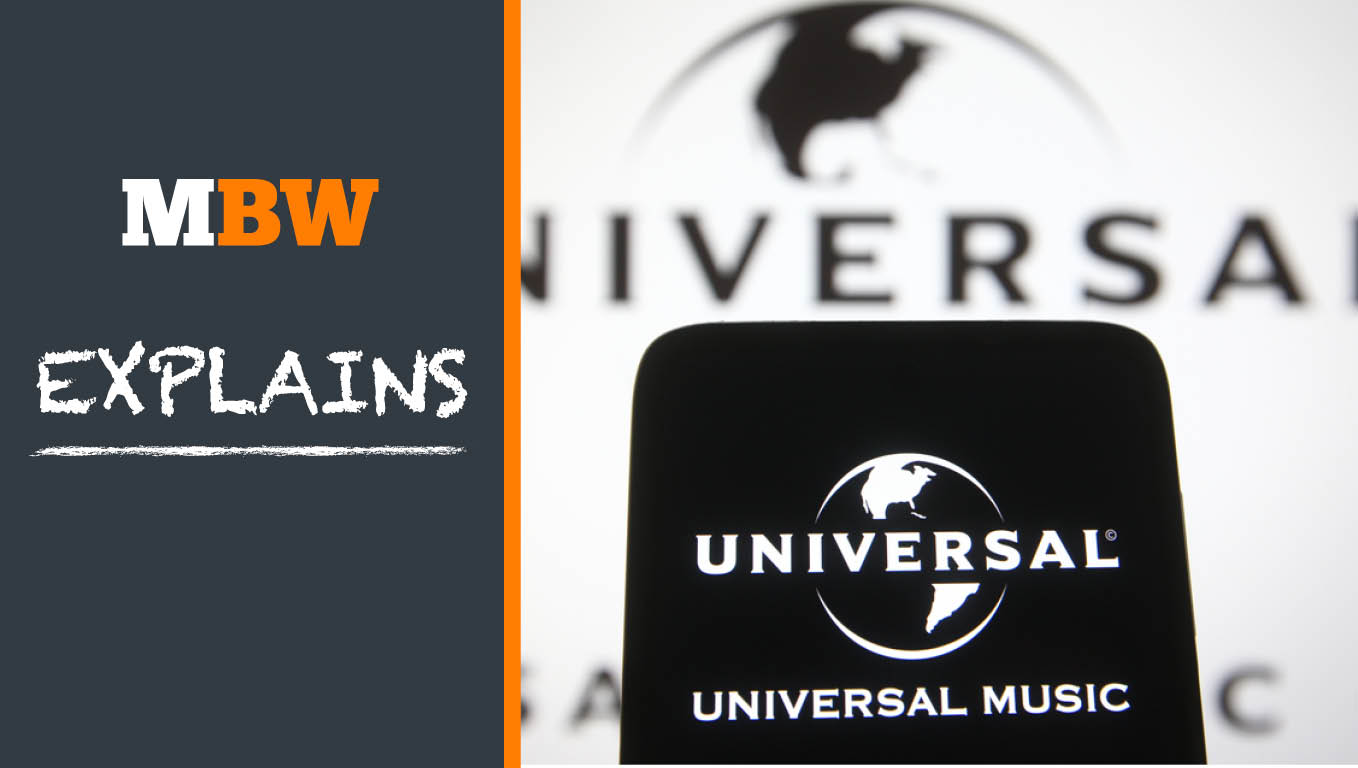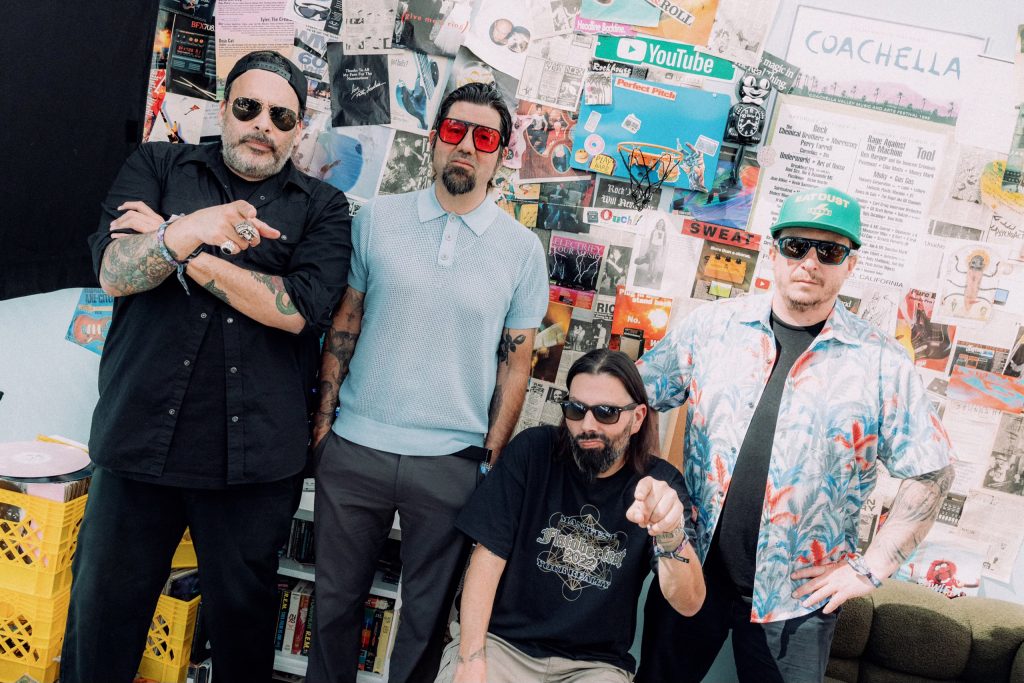Universal Music Group and Downtown Music Holdings Deal
Universal Music Group‘s Virgin Music Group announced in December its agreement to acquire Downtown Music Holdings LLC in a $775 million deal.
On Friday (April 25), Europe’s competition regulator – the European Commission – indicated its intention to investigate the proposed transaction.
The EC initiated this investigation in response to a legal mechanism in EU competition law triggered by the Netherlands, known as Article 22.
Recent Applications of Article 22
In recent times, Article 22 has been employed by various EU member states in several high-profile mergers and acquisitions.
For instance, in December, the European Commission approved unconditionally NVIDIA’s $700 million acquisition of AI company Run:AI, concluding that the transaction would not pose any competition issues within the European Economic Area after a referral from Italy, invoking Article 22.
In a surprising turn, NVIDIA filed a lawsuit against the European Commission earlier this year regarding its decision to investigate the deal. According to Reuters, a favorable outcome for NVIDIA might limit the EC’s authority over mergers in Europe.
In 2022, the EC approved Meta’s acquisition of Kustomer, a customer relationship management platform, albeit with certain conditions. Austria triggered the case under Article 22, which was later supported by several other nations.
Apple‘s $400 million acquisition of Shazam in 2018 was also scrutinized by the EC after an Article 22 referral from Austria and six other Member States. The Commission conducted a detailed investigation before granting approval.
Three notable deals, three significant authorizations.
One recent instance where a deal was referred to the EC via Article 22 but wasn’t approvals involved Illumina’s $7.1 billion acquisition of Grail, a company focused on cancer detection tests. This was referred to the EC by France along with other countries.
The EC investigated the acquisition and subsequently prohibited the deal in September 2022, citing concerns over its effects on the early cancer detection tests market.
Illumina launched a legal challenge against the EC, which it won, with the European Court of Justice overturning the EC’s decision, concluding that the Commission lacked jurisdiction under Article 22.
Illumina contended that the deal was outside the Commission’s jurisdiction, which the ECJ ultimately validated, as reported by Reuters.
As evident, Article 22 has been the legal avenue utilized in Europe to refer these cases to the EC. Here’s an overview of its implications and the investigation process concerning the UMG/Downtown acquisition.
Understanding Article 22
1. What is Article 22?
Article 22 of the European Commission’s Merger Regulation (ECMR), sometimes referred to as the “Dutch clause,” permits EU Member States to refer merger cases to the European Commission for review, even if these mergers do not meet the EU notification thresholds.
This mechanism was instituted as part of the original European Merger Regulation (Council Regulation 4064/89), adopted on December 21, 1989, and effective as of September 21, 1990.
Representing the first comprehensive EU-level merger control system, Article 22 was included to counteract the absence of national merger control regimes in some Member States, notably the Netherlands, at that time.
2. What happens when a member state triggers Article 22?
To invoke Article 22, a Member State must submit a formal referral request to the Commission within 15 working days of being made aware of the merger.
The request must illustrate that the “concentration” – i.e. the proposed merger’s potentially dominant market position – could:
“(i) impact trade between Member States; and (ii) significantly threaten competition within the territory of the Member State or States making the request.”
The Article 22 process has significant implications for the broader European market’s inclination to investigate the UMG/Downtown deal specifically.
Upon receiving a referral from any Member State, the EC promptly notifies all other European States about the request.
All other EU and EEA Member States – including major players like Germany, France, Spain, and Italy – then have 15 working days from receiving notification to join the request.
The Commission has 10 working days from the end of this joining period to determine whether or not to accept the referral.
In the context of the Downtown deal, which was referred to the EC by the Netherlands invoking Article 22, Austria was the only other state that chose to join the referral.
It is essential to note that the window for other member states to join the referral is now officially closed, meaning no additional European countries can join the Netherlands and Austria as the investigation unfolds.
3. The significance of turnover thresholds
The European Commission specifies in a document detailing its merger control procedures that it evaluates mergers and acquisitions exceeding certain turnover thresholds to determine their potential effects on competition within the EU market.
These thresholds dictate whether a transaction has an “EU dimension” necessitating notification to and approval from the Commission.
The “EU Dimension” stipulates that both entities involved in an acquisition must attain specific annual turnover thresholds in the EU and globally to warrant EU law notification to the EC regarding their planned deal.
Interestingly, the EC confirmed on Friday that UMG’s proposed Downtown deal “does not reach the turnover thresholds set forth in the EUMR (EU Merger Regulation).”
As a result, UMG was not initially required to notify the European Commission about the transaction.
However, Universal was obliged to notify two particular European member states regarding the deal: the Netherlands and Austria, where it met “the relevant national turnover-based notification thresholds,” according to the EC.
In Austria, if the companies’ combined global turnover exceeds €300 million and the Combined Austrian turnover exceeds €30 million, and at least two parties have Austrian turnover exceeding €1 million, notification is required to the Austrian Competition Authority.
In the Netherlands, if the companies’ combined worldwide turnover surpasses €150 million and at least two parties have Dutch turnover exceeding €30 million, notification to the Dutch competition authority (ACM) is required.
Universal Music Group’s cumulative global annual revenue in FY 2024 (across recorded music, publishing, and beyond) was EUR €11.834 billion (USD $12.81bn).
According to Dutch company records, Downtown-owned FUGA alone generated revenues of €187.78 million in 2023 and €168.44 million in 2022 (see below).
The thresholds are significantly higher at the EU level. A transaction qualifies as having an “EU dimension” requiring notification to the European Commission if either of the subsequent thresholds is met:
Primary Thresholds:
- Combined worldwide turnover exceeds €5 billion, and;
- At least two undertakings each have EU-wide turnover exceeding €250 million
- UNLESS each undertaking achieves more than two-thirds of its EU-wide turnover in a single Member State
Secondary Thresholds:
- Combined worldwide turnover exceeds €2.5 billion, and;
- Combined turnover exceeds €100 million in each of at least three Member States, and;
- At least two undertakings each have turnover exceeding €25 million in those same three Member States, and;
- At least two undertakings each have EU-wide turnover exceeding €100 million
- UNLESS each undertaking achieves more than two-thirds of its EU-wide turnover in a single Member State
Transactions meeting either set of thresholds must be notified to and approved by the Commission before implementation.
4. We are now in the ‘pre-notification’ period
UMG is currently obligated to notify the European Commission about the deal and is in the pre-notification phase.
The pre-notification period pertains to the duration following a deal’s referral by a Member State competition authority under Article 22 of the EU Merger Regulation, before formal notification.
During this interval, parties interact with the competition authority through pre-notification discussions, addressing initial issues such as jurisdiction questions, and ensuring the notification is complete upon formal submission.
This phase allows parties to amicably resolve potential concerns early and compile thorough information for the subsequent investigation phase.
It is a pivotal preparatory stage that aids in streamlining the formal review process once notification occurs.
No set deadline exists for filing formal notification with the European Commission.
5. Formal notification and Phase 1 investigation
Following formal notification under Article 22 of the EU Merger Regulation, the official review process – the Phase One investigation – is initiated.
The competition authority has 25 working days to conduct its Phase I investigation, evaluating if the proposed “concentration” poses serious competition concerns.
During this timeframe, the authority reviews the submitted information, may demand additional data, and possibly consults third parties such as competitors and customers.
If concerns are identified, the authority can accept remedies from the parties or open an in-depth Phase II investigation, extending the review period by up to 90 additional working days.
Conversely, if no serious issues are detected during Phase I, the deal will be cleared unconditionally, permitting the transaction to progress.
According to the European Commission, “more than 90% of all cases are resolved in Phase I, typically without remedies,” implying that less than 10% of cases move towards Phase II.
6. A Phase II investigation is rare
In the uncommon instance that a Phase II investigation is commenced under the EU Merger Regulation, the European Commission undertakes an exhaustive examination lasting 90 working days, extendable by 15-20 additional working days if necessary.
During this period, the Commission meticulously investigates competition concerns via comprehensive document reviews, stakeholder interviews, and economic analyses. The parties have opportunities to provide remedies addressing identified issues.
The Commission may request substantial additional information and conduct formal hearings involving the parties and third parties. At the end of the investigation, the Commission can either approve the merger (with or without conditions) or prohibit it entirely if competition concerns cannot be satisfactorily resolved.
To highlight those statistics again, Phase II investigations are rare, accounting for less than 10% of all EU merger cases.
7. A final thought…
Drawing from historical trends, it appears the odds favor the approval of the UMG-Downtown deal, potentially with conditions attached.
In contrast to the blocked Illumina-Grail merger, which raised concerns about eliminating future competition in cancer screening, the music sector has already undergone significant consolidation, and the EC has generally approved such transactions.
Furthermore, the recent ECJ ruling in the Illumina/Grail case may reshape the landscape for Article 22.
This ruling limits the Commission’s authority to review transactions that fall below both EU and national merger control thresholds, which could influence the handling of future Article 22 cases. This ruling was characterized in an article in the Journal of Antitrust Enforcement as “a watershed moment for EU merger control.”
“We are confident that we will complete this acquisition in the second half of the year, adhering to the original timeline.”
Universal Music Group
For Universal Music Group, this regulatory scrutiny comes as the company continues to broaden its global presence.
The acquisition of Downtown would significantly enhance artist and label services within UMG’s portfolio through Virgin Music Group, integrating Downtown-owned FUGA, CD Baby, Curve Royalty Systems, and other organizations in the Downtown network.
The outcome of this investigation will be closely monitored by the global music sector, as it may set precedents for future consolidation and M&A activity within the European marketplace.
In a statement released last week, UMG expressed optimism about securing approval for the deal: “We look forward to continued cooperation with the European Commission in the coming weeks. We are confident that we will finalize this acquisition in the latter half of the year, on its original schedule.”
The EU is investigating UMG’s $775m Downtown buyout – but why, and what happens now?





